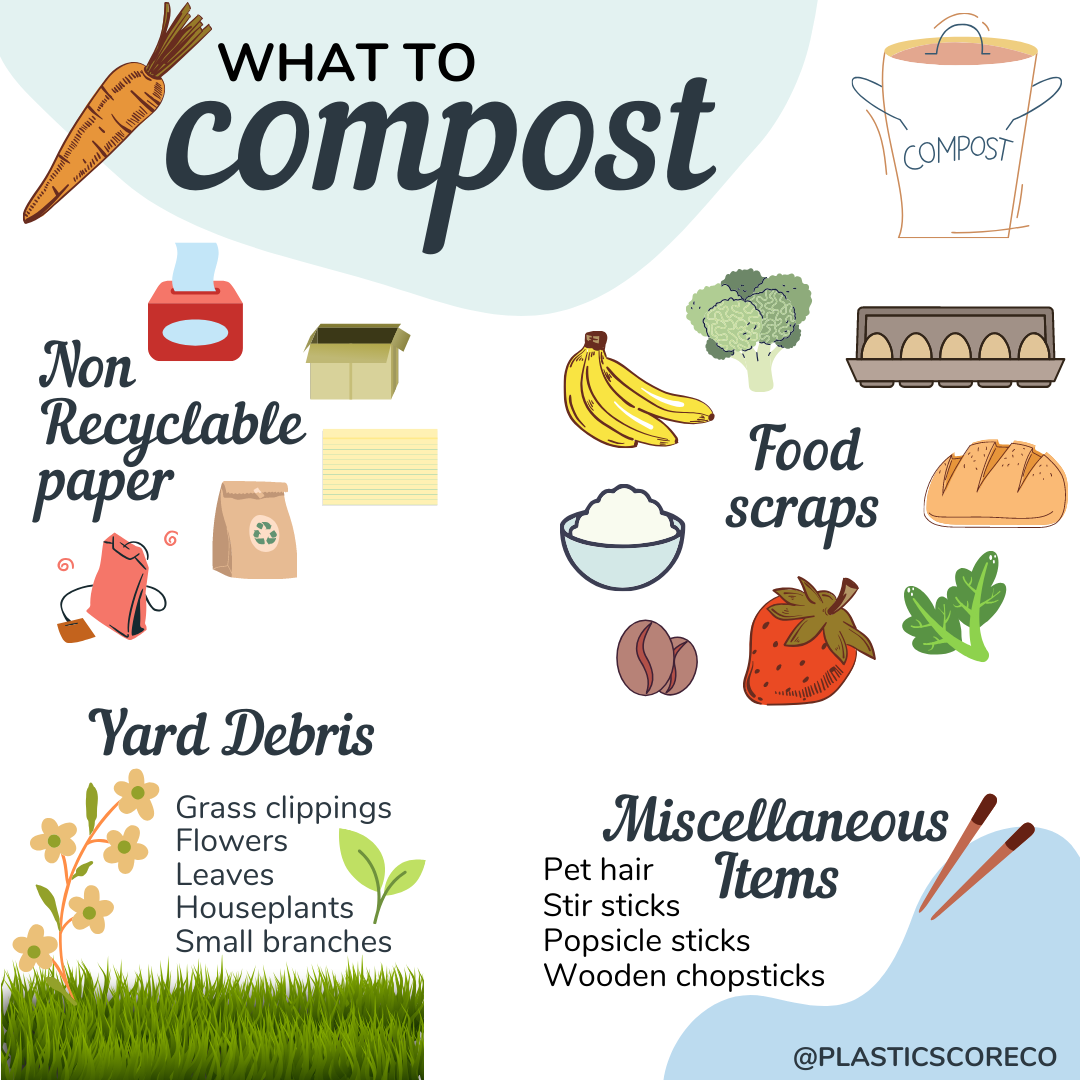Composting 101 - An Informational Guide to Composting
Composting is a big way that people and restaurants can reduce food waste and also reduce their carbon footprint. With some much that goes into composting, it can be a bit confusing. That’s why we’ve broken it all down for you here!
What is Composting
Composting is the process of breaking down food scraps and garden waste through decomposition. The result is nutrients rich soil, aka compost, that you can use to naturally and organically fertilize growing veggies and plants.
Why Composting is Important
Here are some reasons why composting is so important:
Even though food is decomposable, when it's buried in a landfill next to plastics and other non-biodegradable materials, it can take decades or more for the food to degrade.
When food breaks down in the landfill, it generates about 20 times more carbon dioxide than it would if it were in a compost bin.
Carbon dioxide is a greenhouse gas that leads to global warming.
Adding food to the landfill takes up landfill space, which means more landfills will need to be built quicker.
When you compost, you can reduce the amount of waste you throw away by as much as 50 to 75 percent!
What to Compost
Now that we know why composting is so important, what exactly can be composted?
Food scraps and yard debris are organic materials that you can feel confident composting! If you are composting in a backyard composting system, avoid putting oils, animal fats, or animal products into the compost bin.
Paper, cardboard, and wood by themselves are definitely compostable, but sometimes products made of these materials can be coated with plastic, PFAs, or other substances that contaminate the compost. Even some paper towels have been found to have plastic in them, so you will need to be careful with those items.
It's really hard to tell what coating is on a product and many composers have different guidelines. Always check with your local provider, and when in doubt, throw it out!
Different Types of Containers to Compost in
There are multiple different types of composting systems available for traditional composting and for vermicompost.
Tumblers - Compost tumblers are a common type of composting bin that allows the user to spin the compost bin, in order to aerate the compost pile.
At-home compost solutions - Denver Urban Gardens has wooden pallet made compost bins that allow the compost to naturally aerate. These can also be moved to allow for the compost bin to be mixed.
Vermicompost - This type of composting system is great for people who live in apartments or have smaller backyards, as vermicompost takes up less space. In vermicompost systems, worms are introduced, which break down the food and yard scraps quickly. The worms produce "castings" which are high in nutrients and can help fertilize your garden.
What to do with Finished Compost
Wonder what compost can be used for? Compost can help grow flowers and veggies and can also help amend soil health. It can be used as topsoil, mulch, or for potting soil!
When vermicomposting, you will end up with worm castings. These worm castings are a very powerful source of nutrients that can be used as an organic fertilizer for your outdoor plants and veggies and even for your indoor house plants.
Composting Companies in Colorado
There are many great composting service providers within Colorado and Denver, where our headquarters are located. Here are a few of our favorite providers:
Scraps - Scraps is a bike-powered compost pick-up service within the Denver metro area, which services offices, restaurants and homes.
A1 Organics - A1 Organics had diverted 375,000 tons of Colorado's food and compostable waste from the landfill each year! They also sell their high-quality compost locally, such as the ECOGRO™ Bag that are sold within Ace Hardware stores within Colorado.
Compost Colorado - Compost Colorado is a unique composting solution within the Denver Metro area that services apartment buildings, townhomes, homes, and condos. They collect residents' food waste in reusable totes and deliver sustainable products when collecting your compost.
City of Denver’s Compost Collection Program - If the City of Denver handles your trash and recycling, for less than $10 per month you can get a green bin and start composting at home!
Do you compost at home? Have some compost tips that you would like to share? Comment below!




